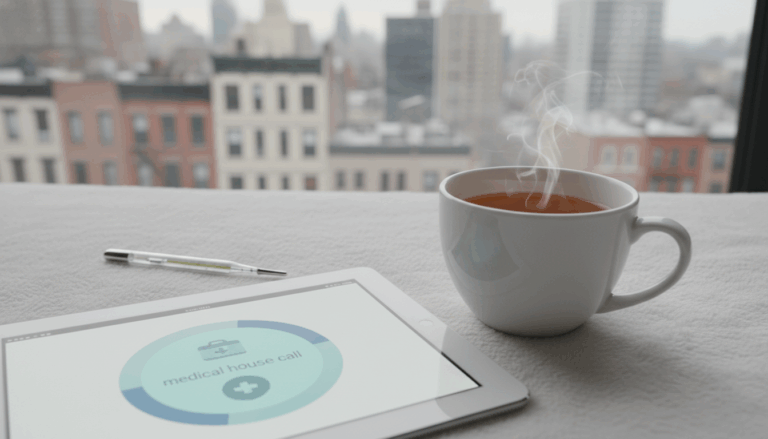Headaches are a common condition that can affect anyone at any time. They can range from mild to severe, and can be caused by a variety of factors, including stress, tension, dehydration, and more. While there are many over-the-counter drugs available to help relieve the symptoms, natural remedies can be just as effective and have fewer side effects. In this article, we will discuss the top 10 natural remedies to relieve headaches.
1. Ginger
Ginger is a natural anti-inflammatory and can be very effective in reducing headaches caused by inflammation. It contains compounds called gingerols, which have been shown to have pain-relieving and anti-inflammatory effects. You can consume it in a variety of ways, such as making ginger tea or adding fresh ginger to your meals. To make ginger tea, simply add a few slices of fresh ginger to a cup of boiling water and let it steep for a few minutes before drinking.
2. Peppermint Oil
Peppermint oil has a calming effect and can help relieve tension headaches. It contains menthol, which has a cooling and soothing effect on the body. You can apply it topically to your temples or neck, or inhale it by adding a few drops to a bowl of hot water and breathing in the steam. To apply it topically, mix a few drops of peppermint oil with a carrier oil, such as coconut oil, and apply it to your temples or neck.
3. Lavender Oil
Lavender oil has a calming effect on the nervous system and can help relieve migraines. It contains compounds called linalool and linalyl acetate, which have been shown to have pain-relieving and anti-inflammatory effects. You can apply it topically to your temples or inhale it by adding a few drops to a bowl of hot water and breathing in the steam. To apply it topically, mix a few drops of lavender oil with a carrier oil, such as jojoba oil, and apply it to your temples.
4. Magnesium
Magnesium is a mineral that can help reduce the frequency and severity of migraines. It plays a key role in many bodily functions, including muscle and nerve function, and has been shown to have a calming effect on the body. You can increase your magnesium intake by eating foods such as spinach, almonds, and black beans, or by taking a magnesium supplement. The recommended daily intake of magnesium is 400-420 mg for men and 310-320 mg for women.
5. Butterbur
Butterbur is a herb that has been used for centuries to treat headaches. It works by reducing inflammation and relaxing blood vessels. It contains compounds called petasin and isopetasin, which have been shown to have pain-relieving and anti-inflammatory effects. You can take butterbur in capsule form, but be sure to buy a product that has been processed to remove a harmful substance called pyrrolizidine alkaloids. The recommended daily dose of butterbur is 50-75 mg, taken in two to three divided doses.
6. Feverfew
Feverfew is another herb that has been used for centuries to treat headaches. It works by reducing inflammation and relaxing blood vessels. It contains a compound called parthenolide, which has been shown to have pain-relieving and anti-inflammatory effects. You can take feverfew in capsule form, or by chewing on fresh feverfew leaves. The recommended daily dose of feverfew is 250-500 mg of dried leaves, or 2-3 fresh leaves per day.
7. Valerian Root
Valerian root is a natural sedative and can help relieve tension headaches. It contains compounds called valerenic acid and valeranon, which have been shown to have a calming effect on the body. You can take it in capsule form, or make a tea by steeping valerian root in hot water for 10-15 minutes. The recommended daily dose of valerian root is 300-600 mg, taken in two to three divided doses.
8. Exercise
Exercise can help relieve tension headaches by reducing muscle tension and increasing blood flow. It releases endorphins, which are natural painkillers, and can also help reduce stress and anxiety, which can be triggers for headaches. You don’t have to do anything strenuous – even a short walk can be beneficial. Aim for at least 30 minutes of moderate exercise per day, such as walking, cycling, or swimming.
9. Acupuncture
Acupuncture is a traditional Chinese medicine that involves inserting thin needles into specific points on the body. It can be very effective in treating migraines and tension headaches. It works by stimulating the nervous system and releasing natural painkillers, such as endorphins. It can also help reduce muscle tension and improve blood flow. The number of sessions needed depends on the severity and frequency of your headaches, but most people see improvement after 6-8 sessions.
10. Yoga
Yoga is a mind-body practice that can help reduce stress and tension, which can be a trigger for headaches. Certain yoga poses, such as the forward fold and the child’s pose, can be particularly effective in relieving headaches. It also helps improve flexibility, posture, and breathing, which can all contribute to better overall health. Aim for at least 30 minutes of yoga per day, or attend a class at a local yoga studio.
Conclusion
Headaches can be a real pain, but there are many natural remedies that can help relieve the symptoms. If you suffer from headaches on a regular basis, try incorporating some of these remedies into your routine and see if they help. As always, be sure to consult with your healthcare provider before trying any new remedies or supplements. Remember, natural remedies can be just as effective as over-the-counter drugs, and can have fewer side effects. If these natural remedies aren’t helping with your headaches, try scheduling a medical house call from Sickday.

